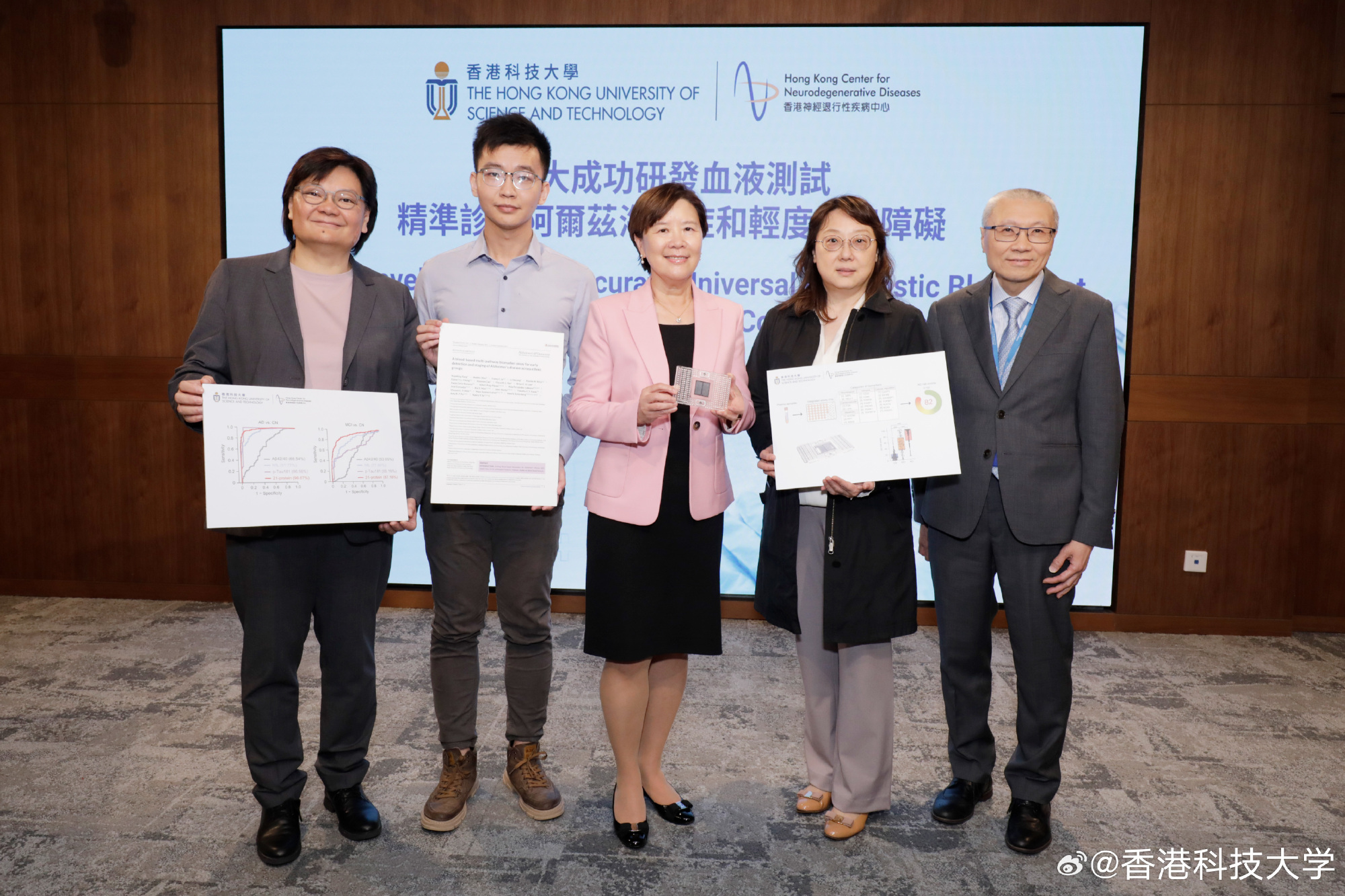

The pictures in this article are all from Weibo@Hong Kong University of Science and Technology
Xinhua News Agency, Hong Kong, February 19th: The Hong Kong University of Science and Technology announced on the 19th that an international research team led by the school has recently successfully developed a cutting-edge blood test that can early detect Alzheimer's disease and mild cognition. obstacles, with accuracy rates exceeding 96% and 87% respectively.
According to researchers from the Hong Kong University of Science and Technology, one of the main characteristics of Alzheimer's disease is the accumulation of harmful amyloid plaques in the brain, causing brain cell dysfunction. Measuring amyloid levels can only be done through expensive brain imaging or invasive acquisition methods. At present, the diagnosis of Alzheimer's disease is mainly based on clinical observation of symptoms, but clinical symptoms only appear 10 to 20 years after the onset of the disease. At this time, the disease has developed to the middle and late stages, and it is difficult for patients to obtain effective treatment.
A team from HKUST recently developed a blood test that can detect Alzheimer's disease and mild cognitive impairment early with high accuracy. The team confirmed that the blood test was highly accurate in differentiating between people with Alzheimer's disease, mild cognitive impairment and those with normal cognition, and could detect amyloid pathology in the brain.
In addition, the blood test developed by HKUST can simultaneously detect changes in the levels of 21 Alzheimer's disease-related blood protein biomarkers, thereby more accurately detecting Alzheimer's disease and mild cognitive impairment, and closely monitoring the condition develop.

Yip Yu-ru, President of HKUST and Director of the Hong Kong Center for Neurodegenerative Diseases, who led the research, said that the Alzheimer's disease blood test developed by the HKUST team is simple, efficient and less invasive and can be used to screen suitable patients for clinical trials and drugs. treatment, and for close monitoring of disease progression and drug response.
The research was conducted in collaboration with HKUST, University College London and other institutions. The relevant research results were recently published in the authoritative international scientific journal "Alzheimer's Disease and Dementia: Journal of the Alzheimer's Disease Association".
